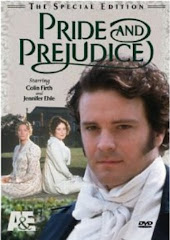ROMANTICISM
The novel Pride and Prejudice was written during the middle of the Romantic period in western literature, but it is itself rather uncharacteristic of other fictional works of the period. Unlike the great Romantic novels and poems of the period, which usually praised youthful passions, Austen's work minimizes them. Compared to Johann Wolfgang von Goethe's classic sturm und drang novel The Sorrows of Young Werther (1774), in which the young hero is unsuccessful at love and, unable to make his inner visions conform to the reality of the outer world, finally commits suicide, Austen's works are models of restraint. Instead of the wild forces of nature, Austen concentrates on family life in small English towns. Instead of rampant emotionalism, Austen emphasizes a balance between reason and emotion. Instead of suicide and unrequited love, Austen offers elopement and marriage. Although the author does consider some of the same themes as her Romantic contemporaries—the importance of the individual, for instance—Austen's society is altogether more controlled and settled than the world presented in Romantic fiction.
IRONY
Irony, or the contrast between the expected and the actual, is the chief literary device Austen uses to comment on the small, enclosed world of the English gentry in Pride and Prejudice. Her irony takes different forms for different characters. Perhaps the most ironic character in the entire book is Mr. Bennet, father of the five Bennet sisters. Mr. Bennet is married to a silly woman he cannot respect, who centers her life on marrying her daughters off to wealthy, well-bred men. He expresses his discontent in the marriage by criticizing his wife's stream of comments. Many of these are sarcastic and hurtful, and contribute to the misunderstandings between the couple that leave them incapable of dealing with the disastrous elopement of their youngest daughter Lydia with the detestable George Wickham. Mr. Bennet's conscious use of irony is for him a game—it serves no useful purpose.
For the author, in the persona of Mr. Bennet's daughter Elizabeth, however, irony is both a toy and a defensive weapon in the war against stupidity. The author uses Elizabeth to skewer self-important characters such as Mr. Collins and Mrs. Bennet. Yet Elizabeth is also blind to her own character faults, and her very blindness is another example of Austen's use of irony. In her misunderstandings with Darcy, she (who is blind to her own pride in her ability to read character) accuses him of excessive pride, while he (who is prejudiced against people with less money than he has) accuses her of prejudice. The on-again, off-again love between Jane Bennet and Charles Bingley is also an example of Austen's use of irony to underline messages about love and marriage. "Jane and Bingley provide us, then, with one of the book's primary ironies," writes Marvin Mudrick in "Irony as Discrimination: Pride and Prejudice," "that love is simple, straightforward, and immediate only for very simple people." "In Pride and Prejudice," concludes Mudrick, "Jane Austen's irony has developed into an instrument of discrimination between the people who are simple reproductions of the social type and the people with individuality and will, between the unaware and the aware."
Other examples of Austen's use of irony abound in the novel. "Many pages of Pride and Prejudice can be read as sheer poetry of wit, as [Alexander] Pope without couplets," writes Reuben A. Brower in "Light and Bright and Sparkling: Irony and Fiction in Pride and Prejudice." "The triumph of the novel—whatever its limitations may be—lies in combining such poetry of wit," the critic concludes, "with the dramatic structure of fiction."
Tuesday, June 28, 2011
Subscribe to:
Post Comments (Atom)





No comments:
Post a Comment
Note: Only a member of this blog may post a comment.